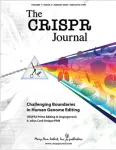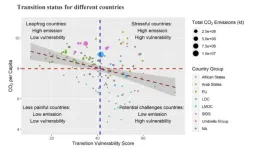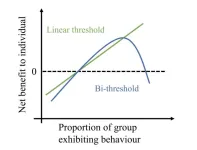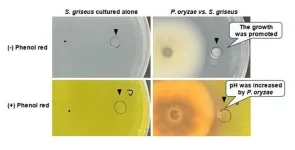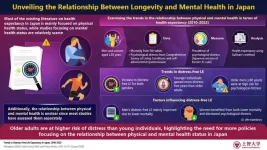(Press-News.org) New Rochelle, NY, October 18, 2024—An invited Guest Editorial entitled “Give Cas a Chance,” by Fyodor Urnov, PhD, Director of Technology & Translation at the Innovative Genomics Institute (IGI), anchors the October 2024 special issue of The CRISPR Journal on “CRISPR Trials.”
As guest editor of the special issue, Dr. Urnov has penned an extraordinary editorial that emphatically defines the magnitude of the crisis in the genome editing arena and offers a path forward. The inherently programmable nature of CRISPR gene editing that makes it so amenable to addressing thousands of rare genetic diseases is in jeopardy of being squandered unless action is taken now.
Despite the excitement over the FDA approval of Casgevy in December 2023, there are only a handful of gene editing therapies on course to win approval over the next 1-3 years. The picture is “akin to a skyscraper in an affluent country in the Middle East: the landscape around them is flat,” Dr. Urnov writes.
Dr. Urnov proposes a set of interlocking initiatives, starting by pooling patients by syndrome, rather than tackling one mutation at a time. The next step would be to permit multiple gene editors to be incorporated into a single Investigational New Drug application. A further advance would involve focusing regulatory approval on a platform approach, similar to that used for personalized cancer vaccines.
Dr. Urnov argues passionately that the industry needs to adapt a “CRISPR as a platform” mindset without delay. “In the name of all the patients currently living with clinically editable genetic disease, and those who will be born to live with it—we have to give Cas a chance,” he states.
The Guest Editorial by Dr. Urnov anchors the October 2024 special issue of The CRISPR Journal on “CRISPR Trials”. The issue contains a Review article from Ross Wilson (IGI) and colleagues on Genome editing therapy for the blood; a Perspective from Jon Rueda, Lluis Montoliu and colleagues on the ethical imperative of affordable pricing for CRISPR therapies; a Perspective from Editor-in-Chief Rodolphe Barrangou and colleagues assessing the current status of CRISPR clinical trials; and five original research articles.
For full-text copies of articles or to arrange interviews, contact Kathryn Ryan at the Publisher.
About the Journal
The CRISPR Journal is the only peer-reviewed publication dedicated to the science and applications of gene editing. Spearheaded by Editor-in-Chief Rodolphe Barrangou, PhD and aided by a diverse and accomplished editorial board, the Journal provides a high-profile forum for cutting-edge international original research papers, as well as a compelling mixture of frontmatter content— review articles, perspectives, profiles, and commentary spanning not only matters of research but the many social, ethical, and business issues confronting the field. The CRISPR Journal centralizes essential information and analysis on this revolutionary technology in a single location with the aim of solidifying and growing the community of innovative researchers, practitioners, policymakers, and activists who make up the field of gene editing.
About the Publisher
Mary Ann Liebert, Inc. is a global media company dedicated to creating, curating, and delivering impactful peer-reviewed research and authoritative content services to advance the fields of biotechnology and the life sciences, specialized clinical medicine, and public health and policy.
END
Fyodor Urnov on clinical crisis in CRISPR genome editing
2024-10-22
ELSE PRESS RELEASES FROM THIS DATE:
People with type 2 diabetes who eat low-carb may be able to discontinue medication
2024-10-22
WASHINGTON—Adults with type 2 diabetes on a low-carbohydrate diet may see benefits to their beta-cell function allowing them to better manage their disease and possibly discontinue medication, according to new research published in the Endocrine Society’s Journal of Clinical Endocrinology & Metabolism.
Beta-cells are endocrine cells in the pancreas that produce and release insulin, the hormone that controls blood sugar levels.
More than 38 million Americans have diabetes, and over 90% of them have ...
Air pollution linked to having a peanut allergy during childhood
2024-10-22
Exposure to higher levels of air pollution as a baby is linked to having a peanut allergy throughout childhood, according to a new study. And policies aimed at tackling poor air quality could potentially reduce the prevalence and persistence of peanut allergies, it stated.
The research, led by Murdoch Children’s Research Institute (MCRI) and the University of Melbourne, found being exposed to higher levels of air pollution from infancy was associated with increased odds of developing a peanut allergy and having the allergy persist across the first 10 years of life. However, the same association was not seen for egg allergy or eczema.
Published ...
Dangers of the metaverse and VR for US youth revealed in new research
2024-10-22
The metaverse, a space where the lines between physical and digital realities blur, is rising among younger populations. As of March, 33% of teens own a virtual reality (VR) device and 13% use it weekly.
With the metaverse offering richer emotional experiences, youth may be particularly vulnerable to significant harm in these immersive spaces, underscoring the need to explore potential risks.
Unfortunately, research of online victimization in the metaverse is sorely lacking. A new study by Florida Atlantic University, in collaboration with the University of Wisconsin-Eau Claire, is one of the first to examine the ...
A national indicator for a just energy transition
2024-10-22
The Energy Transition Vulnerability Index (ETVI) quantifies the vulnerability of nations to adverse impacts of transitioning away from fossil fuels. The COP28 agreement has called for all countries to wind down use of fossil fuels to combat climate change—but the agreement stipulates that these transitions should not disproportionately harm historically marginalized and vulnerable stakeholders. Xunpeng Shi and colleagues create a method of quantifying energy transition vulnerability for 135 countries from 2010 to 2020. The indicator focuses on exposure—which captures the magnitude of the changes required—, ...
Cognitive effort whets the appetite for reward
2024-10-22
Mental fatigue may make rewards more desirable, according to a study in rats and humans. Exerting cognitive effort has been linked with making unhealthy choices. In the past, the link has been explained via a weaking of inhibitory control or will power. Marcello Solinas and colleagues explore the possibility that cognitive effort may also make unhealthy choices more tempting by increasing the perceived reward. Rats who completed a cognitively demanding task self-administered more cocaine than rats who did not complete a cognitive demanding task—or rats who were allowed ...
European funders and organizations partner to promote sustainable research
2024-10-22
A significant step forwards in changing research practices towards sustainability has been taken with the publication of the Heidelberg Agreement on Environmental Sustainability in Research Funding. The agreement provides a framework for research funders to play an active role and incentivize sustainable practices in research. It outlines principles for transitioning to a more sustainable research system and practical recommendations on how to implement sustainability in funding schemes.
A key focus of the Heidelberg Agreement is to ensure that research funders take a proactive approach to promoting sustainability in scientific ...
A model for the decline of trends, fads, and information sharing
2024-10-22
A model of human behavior finds that people will share information if enough—but not too many—of their contacts do so. Humans are social creatures, and many behaviors and beliefs can spread from person to person. Understanding the dynamics of behavioral diffusion can help encourage healthy or sustainable behaviors or stop the spread of misinformation. Linear threshold models assume that people will adopt a behavior when the number of their social contacts that have done so passes a threshold. Pouria Ramazi and colleagues propose an addition to the model, ...
Plastic mulch is contaminating agricultural fields
2024-10-22
Using plastic sheets for weed control, even under current best management practices, pollutes soil with macro- and micro-plastics and negatively affect critical soil functions, according to a study. The United Nations considers soil plastic contamination an environmental health and food security threat. Around the world, over 25 million acres of farmland is seasonally covered with opaque plastic films used as “mulch” to prevent weeds, retain moisture, and warm soil—a practice known ...
Scientists discover how fungi interact with soil actinomycetes
2024-10-22
In the world of agriculture, rice is a staple food for more than half of the global population, making its cultivation crucial for food security. However, the rice blast fungus Pyricularia oryzae (syn. Magnaporthe oryzae) poses a significant threat to rice crops, causing extensive damage and leading to substantial yield losses. Traditional methods of controlling this pathogen often rely on chemical fungicides, which can have detrimental environmental impacts and contribute to the development of resistant strains. Therefore, researchers are increasingly exploring alternative strategies that leverage natural ...
Beyond longevity: The critical role of mental health in Japan’s well-being
2024-10-22
The Japanese population is known for its longest life expectancy (LE) at birth. Extensive studies have been conducted on the physical health of the Japanese population, mainly on mortality outcomes. However, research on mental health is limited due to the social stigma against mental illnesses. This is alarming since mental health problems such as anxiety, substance use disorders, and suicide rates have largely increased over the years.
Additionally, previous studies have examined the physical and mental health of the Japanese population separately, which makes it harder to understand the relationship between them.
Against this backdrop, Associate Professor Yuka Minagawa ...
